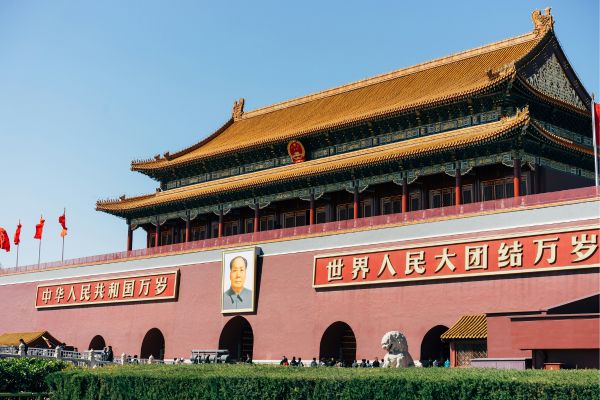
China’s arbitration policies have been increasing since 2015, and the arbitration is gradually gaining widespread attention. We need to understand why this is happening.
There are three phases for the development of China’s arbitration policies from 2015 to the present:
Phase One (2015-2018): from 2015 to the end of 2018, China’s Supreme People’s Court (SPC) provided judicial support for arbitration in order to promote the “Belt and Road Initiative” (BRI);
Phase Two (2018-2019): from the end of 2018 to the beginning of 2019, China decided to enhance its international credibility and competitiveness of arbitration in China, and strive for a voice in the global dispute resolution market;
Phase Three (2019-Present): from the beginning of 2019 to the present, China has been continuously implementing specific measures to promote arbitration, the core of which is to promote the opening up of the arbitration industry in Free Trade Zones (FTZs) of Shanghai and Beijing.
Each phase and its features are discussed in a series of two posts, with Phase One introduced in this post, and the rest two Phases in the second post.
I. Support for Arbitration under the Judicial Safeguards for the BRI: from 2015 to 2018
From 2015 to the end of 2018, the SPC frequently promulgated several judicial documents concerning arbitration.
During this period, there are 9 national arbitration policies, 8 of which are promulgated by the SPC, including judicial interpretations and other judicial documents; and the other one arbitration policy is issued by the State Council, which is concerned with the arbitration in the Shanghai Free Trade Zone.
The SPC’s proactive attitude shows its firm support for arbitration, which is part of its judicial services for the BRI.
The SPC expects to be more deeply engaged in cross-border dispute resolution with respect to the construction of the BRI. While arbitration, benefiting from the free movement of arbitral awards, is the most important way to resolve cross-border disputes, the SPC needs to deal with the issues related to arbitration.
The 9 aforementioned documents cover the following three aspects:
1. Judicial Review of Arbitration
The SPC hopes to demonstrate the positive attitude of Chinese courts towards arbitration by regulating the judicial review of arbitral awards, especially the arbitral awards involving parties in countries along the BRI.
For this purpose, the SPC issued Several Opinions on Providing Judicial Services and Safeguards for the Construction of the Belt and Road Initiative by People's Courts in 2015 (2015 Opinions, 关于人民法院为“一带一路” 建设提供司法服务和保障的若干意见).
In the 2015 Opinions, the SPC hopes to design the mechanism to ensure that local courts adopt an attitude towards arbitration consistent with the SPC and to prevent them from adopting an excessively harsh approach towards arbitration.
Such practice is known as the “Unified Standards for Judicial Review of Arbitration”. Specifically, it includes: (1) “implementing a unified working mechanism for judicial review of commercial and maritime arbitration cases” in respect of the departments in charge of arbitration judicial cases trial; (2) “exploring and improving the judicial review procedure system for setting aside or not enforcing arbitral awards rendered in a foreign country, Hong Kong, Macao or Taiwan, as well as refusing to recognize or enforce foreign arbitral awards” in respect of judicial review procedures for arbitral awards.
It is noteworthy that in 2015 the SPC simultaneously released a number of typical cases to illustrate its pro-arbitration attitude. Among them, there is one case involving arbitration, which is titled “Respecting the Parties’ willingness to Arbitrate and Promoting Internationalization of Arbitration”. Such title greatly summarizes the SPC’s attitude towards arbitration.
Two years later, the SPC successively issued four judicial interpretations, confirming its solution for the “Unified Judicial Review Standards for Arbitration”:
(1) In terms of administration, in May 2017, the SPC established the mechanism for centralized handling of cases involving judicial review of arbitration, i.e.: on the one hand, for local courts, a specialized division of courts shall collectively hear all cases concerned with cases of judicial review of arbitration accepted by the court, so as to ensure the consistency of internal review standards for courts; and on the other hand, the Fourth Civil Division of the SPC led the establishment of a case information system, focusing on handling national information on such cases, so as to ensure the unified review standards throughout the country.[1]
(2) In terms of litigation procedures, in December 2017, the SPC established the report and approval procedure for judicial review cases of arbitration, which means that where a local court decides to make a ruling against the arbitration agreement or an arbitration award, it shall promptly make a request for approval from the court at a higher level (in a hierarchical chain up to the SPC). Such practice may prevent local courts from making a decision that might go against the arbitration.[2]
(3) In terms of substantive standards, the applicable legal standards for judicial review of arbitration and enforcement of arbitral awards have been clarified. The former refers to the review of whether domestic arbitral awards may be set aside, and whether foreign arbitral awards and arbitral awards in Hong Kong, Macao, and Taiwan may be recognized, as stipulated in the Judicial Interpretation issued by the SPC in December 2017. [3] The latter refers to the review of whether an arbitral award may be enforced, as stipulated in the Judicial Interpretation promulgated by the SPC in February 2018.[4]
2. The Unique Development of China International Commercial Court (CICC)
The most attractive move by the SPC to provide judicial safeguards for the BRI is the establishment of the CICC in June 2018. Such mechanism also incorporates support for arbitration.
The CICC is faced with fierce competition in the international dispute resolution market. In order to reach the unparalleled advantage in the market, the SPC puts forward the strategy of the one-stop services, which means that “it selects qualified international commercial mediation institutions, and that international commercial arbitration institutions and CICC jointly build a dispute resolution platform integrally combining mediation, arbitration, and litigation, so as to form a one-stop international commercial dispute resolution mechanism.” [5]
Afterwards, in November 2018, the SPC confirmed the first batch of arbitration and mediation institutions for the one-stop international commercial dispute resolution mechanism, including 5 international commercial arbitration institutions and 2 mediation institutions and all of them are Chinese institutions. [6]So far, we haven't found any other institution newly included.
3. Internationalization of FTZ Arbitration
In April 2015, the State Council issued the Construction Scheme of the Shanghai Free Trade Zone, which mentioned encouraging the Shanghai Free Trade Zone to strengthen the internationalization of commercial dispute arbitration and develop an Asia-Pacific arbitration center oriented to the world.[7]
Specifically, the State Council expects the Shanghai Free Trade Zone to:
(1) optimize the FTZ arbitration rules and make them in line with international standards;
(2) support the market entry of internationally renowned commercial dispute resolution institutions; and
(3) establish an exchange and cooperation mechanism between arbitration legal service alliance in FTZs and arbitration institutions in the Asia-Pacific region.
In December 2016, in response to the scheme proposed by the State Council, the SPC said in its opinion in support of the development of the Shanghai Free Trade Zone that:
(1) Wholly foreign-owned enterprises (WFOEs) in the FTZs are allowed to opt for overseas arbitration in their contracts. Previously, such contracts were likely to be held by the court as lacking foreign-related factors and thus overseas arbitration was disallowed thereby;
(2) Enterprises in the FTZs are allowed to enter into arbitration agreements and settle disputes via ad hoc arbitration. Prior to that, ad hoc arbitration had not been developed in China as ad hoc arbitration wasn’t stipulated in China’s Arbitration Law.[8]
In addition to the two documents, no other specific significant measures have been taken on FTZ arbitration, and in fact, no relevant work has yet been carried out. The development of FTZ arbitration remained stagnant until the beginning of 2019.
References:
[1] 2017年5月22日,最高人民法院《关于仲裁司法审查案件归口办理有关问题的通知》
[2] 2017年12月26日,最高人民法院《关于仲裁司法审查案件报核问题的有关规定》
[3] 2017年12月26日,最高人民法院《关于审理仲裁司法审查案件若干问题的规定》
[4] 2018年2月23日,《最高人民法院关于人民法院办理仲裁裁决执行案件若干问题的规定》
[5] 2018年6月25日,最高人民法院《关于设立国际商事法庭若干问题的规定》
[6] 2018年11月13日,最高人民法院办公厅《关于确定首批纳入“一站式”国际商事纠纷多元化解决机制的国际商事仲裁及调解机构的通知》
[7] 2015年4月20日,国务院《关于印发进一步深化中国(上海)自由贸易试验区改革开放方案的通知》
[8] 张勇健、刘敬东、奚向阳、杨兴业:《<关于为自由贸易试验区建设提供司法保障的意见>的理解与适用》,《人民法院报》2017-01-18。
Contributors: Guodong Du 杜国栋 , Meng Yu 余萌




